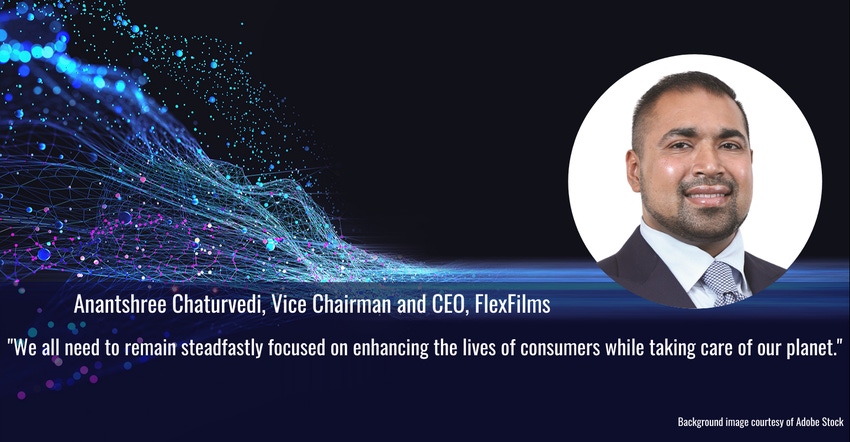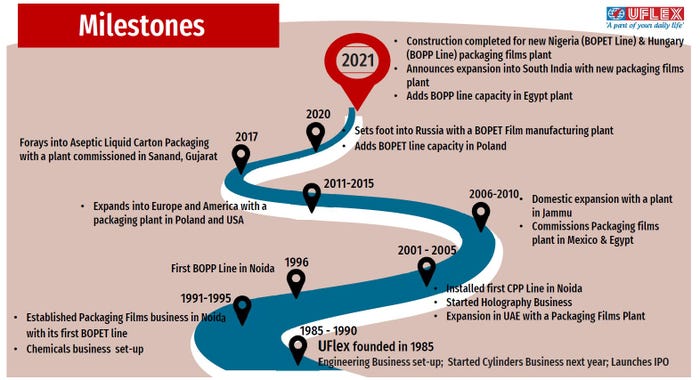A global supplier of multilayer plastic packaging shows that circularity in packaging sustainability is possible now — without sacrificing food quality or shelf life.
August 11, 2021

Packaging sustainability starts with companies on the front lines of the supply chain, which includes plastic packaging manufacturers.
One of those is FlexFilms Intl., a global division of India-based UFlex. The pioneering packaging provider has for decades developed sustainable solutions that build on the inherent light-weighting efficiency of flexible packaging. In fact, Uflex was recognized for Best Paper Award at Davos Recycle 95 Forum for recycling of Mixed Plastic Waste MLP comprising laminated films made of metallized PET/ LDPE/ BOPP and printed with inks. Also, the company received SCS Global Services Kingfisher Certification for a film introduced in 2019 containing up to 100% post-consumer recycled content (PCR) biaxially oriented PET. The film is named for the Greek god of medicine.
Why that name? “The film made from ‘street waste’ was a way for us to help heal the earth,” responds Anantshree Chaturvedi, FlexFilms’ vice chairman and CEO.
While the world and the world’s view of packaging has changed, FlexFilms remains on that same course: environmental accountability for its products, the majority of which are engineered for food packaging.
More precisely, 70% of the company’s packaging is for food markets, Chaturvedi discloses. In an interview with Packaging Digest, Chaturvedi identified these four trends in the food films market:
Sustainability and recyclability without sacrificing food quality and product shelf life;
Ultra-high barrier substrates;
Clear, high-barrier substrates for high-level product visibility;
Vintage-inspired design that induces emotional engagement, especially in an ageing population.

Chaturvedi also offered advice for packaging engineers involved in food markets in the US/North America region.
“Brands need to remain wary of, and informed about, green washing in our industry,” he says, “but they must do the groundwork and make informed decisions.
“Also, as much as brands and converters may look to change all structures to monopolymer or homogenized family polymers, not all can be transitioned without consequences. That’s due to losing essential applicability related to functional specifications, technology inability, commercial unviability, or other reasons. The industry needs multilayered plastic packaging (MLP) recycling capability development and capacity enhancement. That will enable the use of diverse structures that can be optimized within a circular economy. UFlex has a pole position with well-established, 25-year established MLP recycling technology available worldwide.
“We all need to remain steadfastly focused on enhancing the lives of consumers while taking care of our planet.”
Chaturvedi expounded at length on all things flexible and sustainable during a recent podcast interview posted at sister publication PlasticsToday. Topics he discussed included…
The role of digital currency and the digitization of packaging;
Exciting new films using plant-enzyme based biodegradation and nanotechnology;
Bans, consequences, and the need for a balanced approach to sustainability.
You May Also Like


